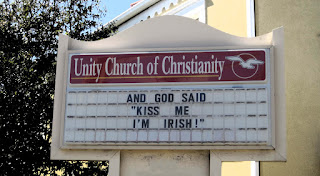A recent piece in the Washington Post had some questions and comments about the “Billy Graham Rule,” now that it’s been brought back to the public eye by its use by Vice President Mike Pence.
Recently, a Washington Post article about second lady Karen Pence has brought the Billy Graham Rule back into the public eye. The article cites a 2002 interview with Vice President Pence — who has called himself an “evangelical Catholic” — saying that he “never eats alone with a woman other than his wife,” and that he doesn’t attend events serving alcohol unless she is with him as well.
I’ll answer the question and comments as best I can.
In this case, the Billy Graham Rule risks reducing women to sexual temptations, objects, things to be avoided.
Women should not be objectified. However, if there was an official list of Top Things That Dehumanize Women That Should Be Challenged, the Billy Graham Rule wouldn’t even make it into the first one hundred. What about the rampant pornography on the internet and sex appeal in the media? If anything, the continued practice of the Billy Graham rule is a reaction to our increasingly pornified culture. It really can’t be blamed for perpetuating it.
If a woman at work cannot meet one-on-one with her boss or colleague, her options for advancement (or even being taken seriously as a colleague) are extremely limited.
Do these career-necessary meetings have to be one-on-one, behind closed opaque doors and completely unaccountable, even to the rest of the business?
In this conversation, we also have to keep in mind the fact that Pence is the vice president of the United States. He is not a pastor and does not act in that capacity. How on earth can he be expected to represent half the country if he won’t eat at the same table as us? Not to mention that his ideological purity is called into question by his support of our current president, who has bragged about committing sexual assault.
Again, the Billy Graham Rule is about private, individual and completely unaccountable meetings, which are not necessary for any affirmation of human dignity or career advancement. The Billy Graham Rule is not just for pastors avoiding scandals for the good of their jobs. It’s for maintaining integrity within marriages and institutions. I think it’s a good thing that one of our elected leaders is practicing it.
However, if we look not to Graham for an example of how to treat women but to Jesus, we will find a different path to follow. Jesus consistently elevated the dignity of women and met with them regularly, including his meeting with a Samaritan woman in the middle of the day.
While Jesus elevated the dignity of women in many more examples in Scripture, one could make the argument that Jesus followed the Billy Graham Rule, as he never had a one-on-one and completely unaccountable meeting with someone of either gender.
As for Billy Graham, he has always been a non-partisan, non-denominational, scandal-free, charitable man of prayer and integrity. He’s been a friend to all sorts of presidents for decades. Billy Graham always released his ministry tax returns to the newspapers so he could be held financially accountable, and the Billy Graham Rule is another simple way he (and now our Vice President) keep themselves accountable to the public.
What’s really wrong with that?






